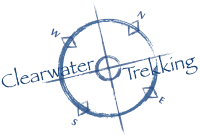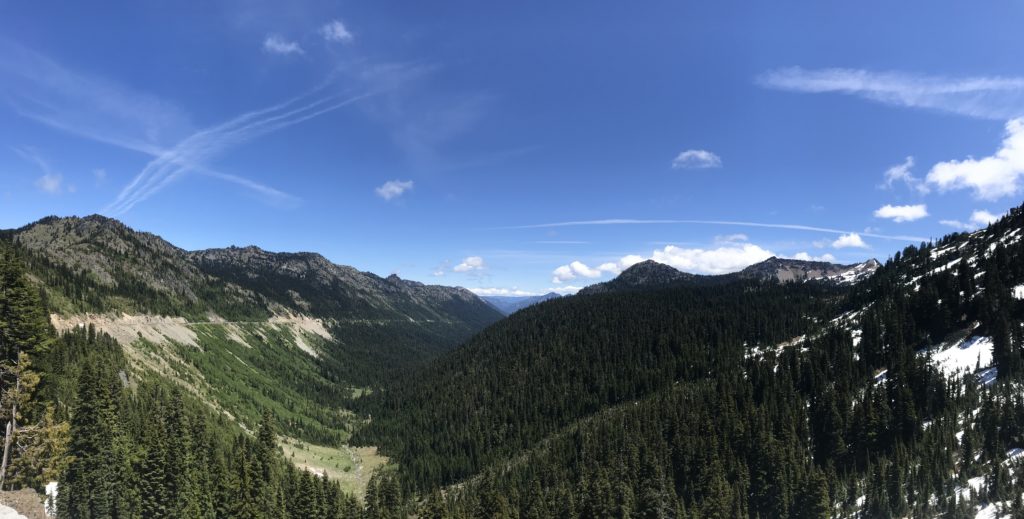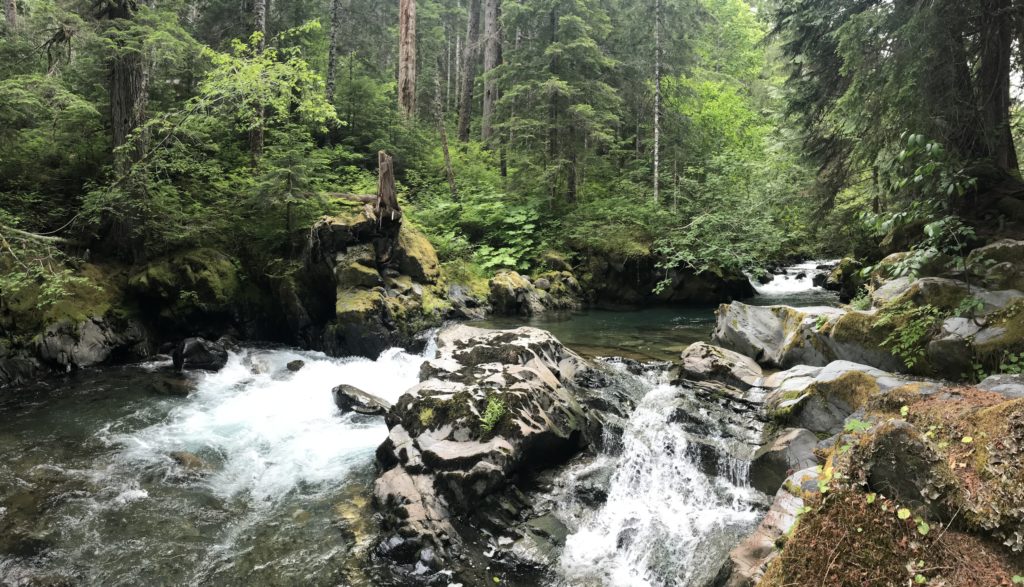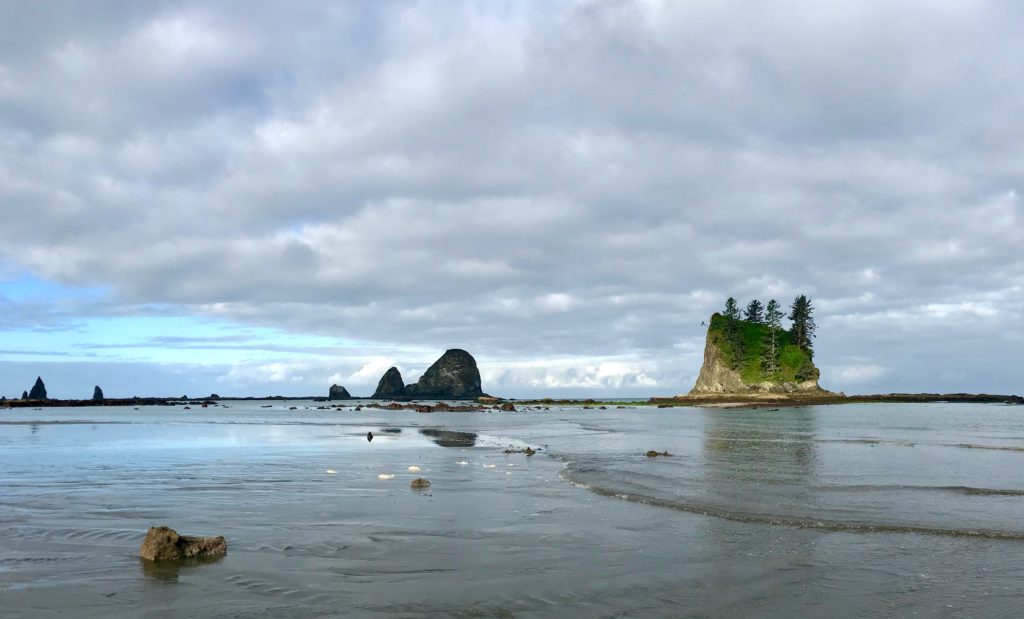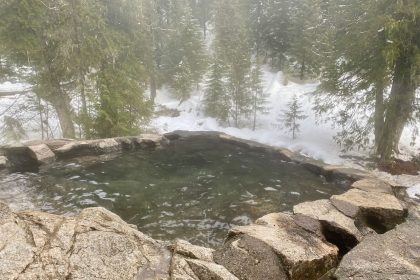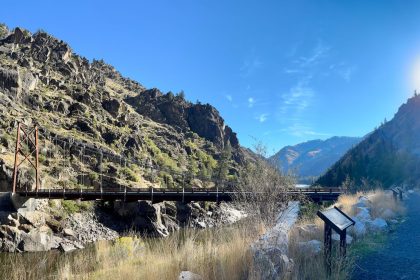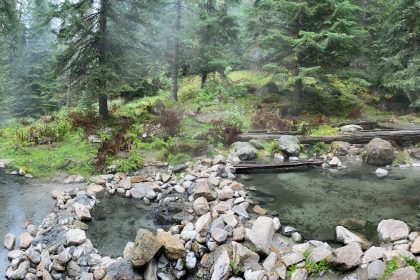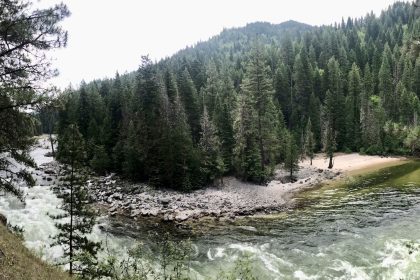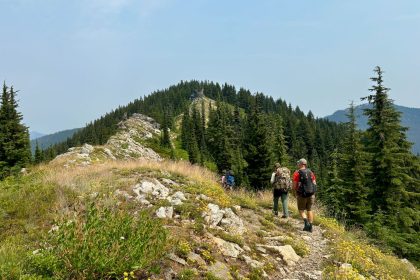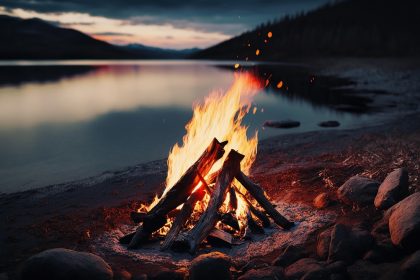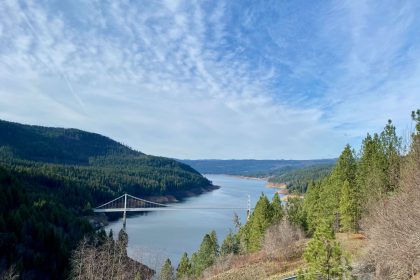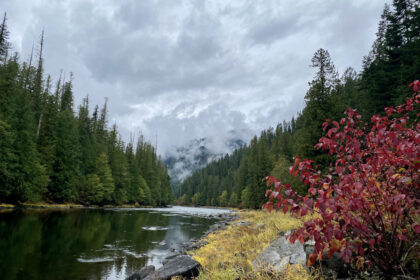Three of us sat on the cliff edge overlooking a gray Pacific Ocean. The fog was thick enough to be a mist, shrouding the morning in quiet. I was sharing the Hero’s Journey with one of our students and a fellow guide, connecting the phases of the Hero’s Journey to the phases of our student’s program at Rites of Passage Wilderness Therapy.
At ROP, our students work through three phases: Individual, Group, and Family.
- During Individual Phase, they sit alone, cook their own food, plug into the nature channel, as we say, and come to grips with where they are and why they’re here.
- In Group Phase, they get to be with the group, share group meals, take on a camp chore, and start learning new skills.
- In Family Phase, they take on more of a leadership role, get to see the map, know the time, and help make decisions.
Our phases are the structure we use to guide students through their own Hero’s Journey, and this is what I was showing our student that misty morning so that he could see the full journey he was on. By connecting his phases to the stages of the Hero’s Journey, I was showing him the map.
“These first two stages of the Hero’s Journey take place mostly within your Individual Phase of the ROP program. When you were dropped off at the Ranch, you received your Call to Adventure, and like most heroes, it took some time for you to accept that call, didn’t it? You really didn’t want to be here, but you worked through your fear and anger and eventually chose to engage in the program. You figured out how to pitch your tent and pack your bag, and you began to get into the flow of things. That’s what we call the Threshold of Ogres, the second stage of the Hero’s Journey. That wasn’t easy, but you made it through, and I’m glad you chose to do this for yourself.
“Crossing that Threshold of Ogres is what got you into Group Phase. It also brought you into the third stage of the Hero’s Journey, what we call the Road of Trials and Finding Allies. How long was your Group Phase? 4 or 5 weeks? During that time, you had to learn whom you could trust and who was a distraction, you learned new skills like starting a fire with flint and steel, and you had to get in touch with yourself and your own goals. This stage takes time and can be confusing. It’s also the bulk of your work here at ROP.
“Eventually, you began to get into the rhythm of your program. Camp chores and hiking up mountains were becoming “normal”, huh? That’s about the time we ratchet up the internal work and send you on your Solo to give you a chance to process all that you have done and learned and come out of. At this point, you’re moving into the fourth stage of the Hero’s Journey, the Magic Flight. This is where you start taking on leadership, you’re working your program with confidence, and you’re connecting more to yourself and nature around you. You probably recognize this as Family Phase, right?
“And that’s where you are right now, and that’s why you’re worried about losing your focus. Because you don’t know how to take this confidence home with you and be successful there, too, right? You won’t have to light fires with moss at home. Instead, you’re going to have to stay sober and learn how to be in Group Phase all over again, but with your family. You found peace and serenity here in the wild, and you’re afraid you’ll lose all that when you go home, huh? So you think it’s better to stay here in the wild, right? But you can’t. That defeats the whole purpose of this journey! The whole point is to go home again, but not empty-handed. Right now, your focus is to find your Gift, your offering to your family and to the world, and take that back with you. In the Hero’s Journey, we sometimes call that the “elixir of life.” It’s the cure the hero brings home to save the princess. It’s your contribution to the meaning of life. And it’s the thing that’s going to help you stay focused and sober and alive.
“Once you find your Gift, you’re ready to cross the Return Threshold, the fifth stage of the Hero’s Journey. This is when you prepare to go home. We’ll give you a Vision Quest, another 24-hours alone, to apply all that you have learned and accomplished towards creating a new vision for your future.
“Then you will be the Master of Two Worlds. This sixth stage of the Hero’s Journey lines up with your graduation from ROP, but it’s NOT the end of your journey. It’s a new beginning. You’ll go home bearing your Gift and you’ll have to learn how to offer it up, but it’s not going to come easily. When you get home, you’ll be in another Individual Phase as you and your family adjust to one another again. Then you’ll move into Group Phase as you take on your role within your family, doing chores and contributing as you did here. Finally, you’ll enter another Family Phase, where you will have earned your family’s trust again. Your Gift may not be received or even understood until then, but that’s ok. All you have to do is find your Gift and offer it to the world.”
It was a lot to take in, but it wouldn’t be our last conversation about new beginnings and offering our Gifts. But this is why we do it. These are moments that compel us guides to stuff our lives into a backpack and live the woods with a bunch of people who don’t even want to be there. Because hope dawns in the heart like the rising sun on a misty morning, burning away the fog of despair.
Joseph Campbell gave us the Hero’s Journey in 1949 with the publication of his book, The Hero With a Thousand Faces. Since then, it has been used to tell the best of stories, to inspire growth and change in all sorts of programs, and to better understand this journey of life we all find ourselves on.
Campbell’s original 17 stages for the Hero’s Journey have often been simplified for various applications. The six stages I refer to here come from the program manual, “Fostering Thriving Communities Through Rites of Passage”, written by Edith Kusnic with Darcy Ottey and Emily Pease, and produced by Rite of Passage Journeys, a non-therapeutic wilderness program in Seattle, WA.
In summary, those six stages are: 1) The Call to Adventure, 2) The Threshold of Ogres, 3) The Road of Trials and Finding Allies, 4) The Magic Flight, 5) The Return Threshold, and 6) The Master of Two Worlds.
